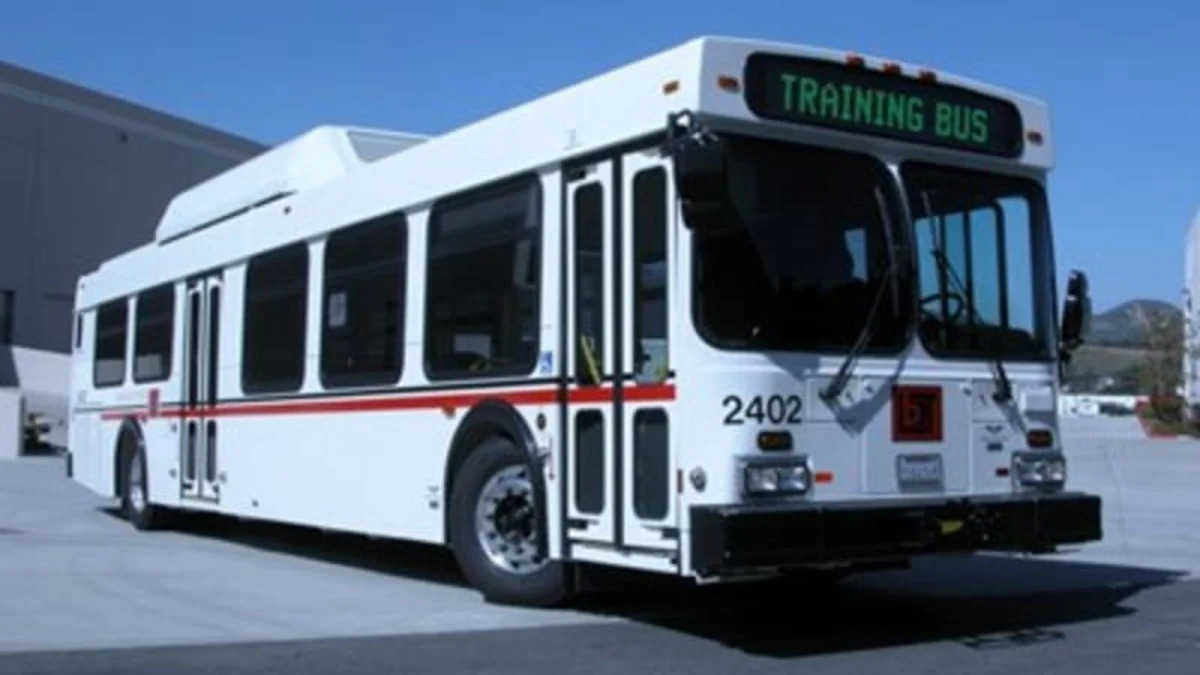The National Renewable Energy Laboratory has just completed a two-year study of the hybrid buses being operated by Long Beach Transit in southern California. Unlike most transit systems using hybrid buses, Long Beach has been using a system that combines a gasoline engine with a series hybrid system. The ISE ThunderVolt hybrid uses a Ford 6.8L V10 running at constant speed to turn a generator that provides juice to a pair of electric motors. Only the motors drive the wheels. Instead of batteries, Long Beach also chose to equip their hybrid buses with ultracapacitors. The Long Beach bus routes are comprised of mostly low speed operation with many stops per mile making the rapid energy absorption of ultra-caps desirable. NREL looked at the performance of the buses and found that the gas hybrids got 4.3 percent lower fuel efficiency than the conventional diesel buses in the fleet. When the lower energy content of gasoline is factored in, though, the gas hybrid came out 8.5 percent better. Overall efficiency was about a wash for the hybrids. In the study the hybrid buses got 3.35 mpg. The increased use of regenerative braking from the ultra-cap hybrids has cut brake system maintenance by 90 percent although other service intervals were somewhat higher. The city has 62 hybrid buses out of a fleet of 228 currently and has ordered 25 more.
[Source: National Renewable Energy Laboratory, via GreenCarCongress]
[Source: National Renewable Energy Laboratory, via GreenCarCongress]


Sign in to post
Please sign in to leave a comment.
Continue